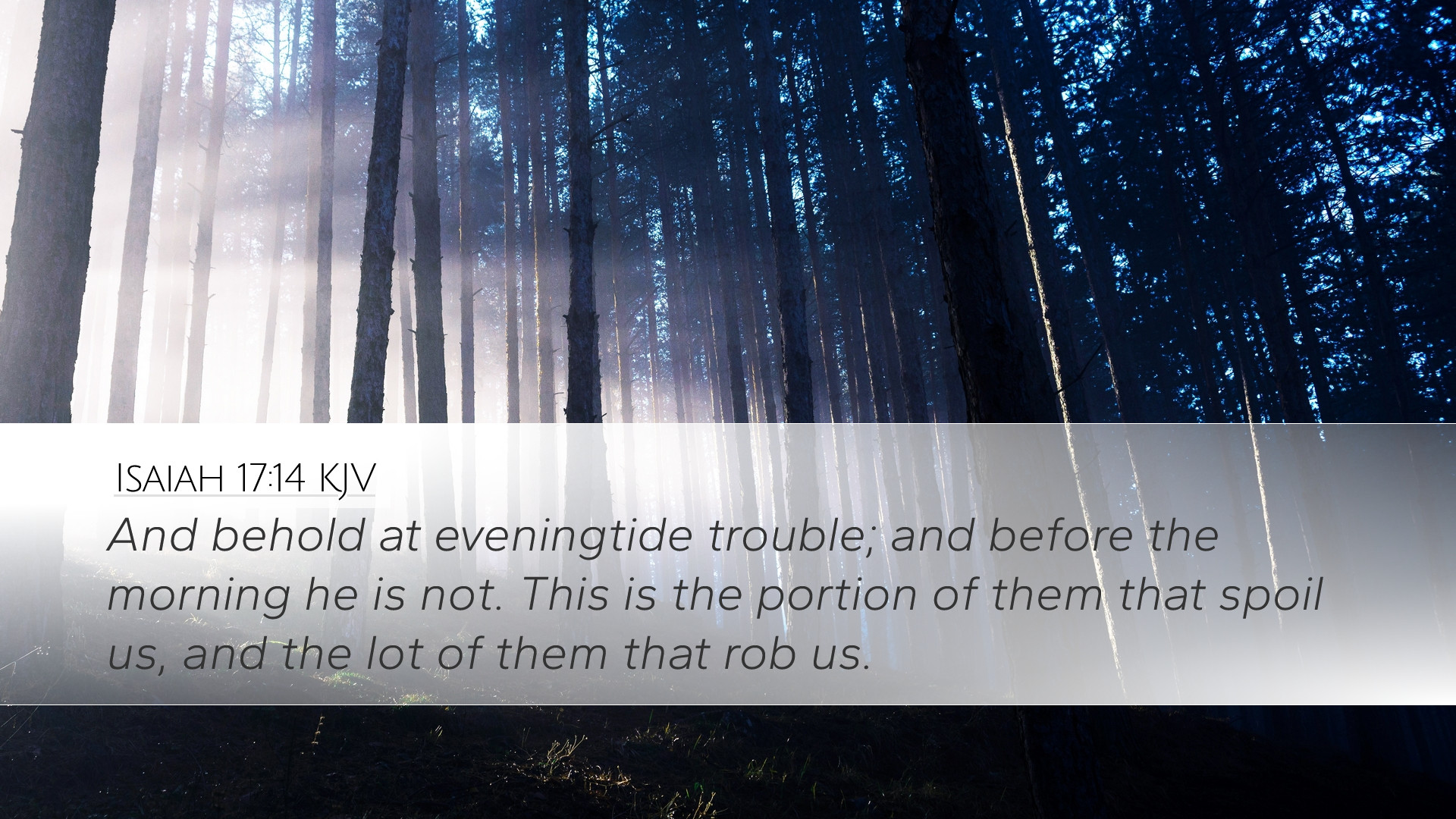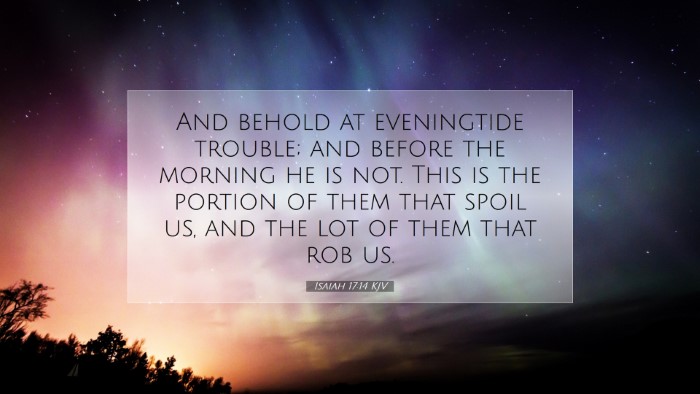Commentary on Isaiah 17:14
Verse: "At evening tide behold, terror; before the morning he is not. This is the portion of them that spoil us, and the lot of them that rob us." (Isaiah 17:14, KJV)
Introduction
The Book of Isaiah is a treasure trove of prophetic insights and judgments. Isaiah 17:14 serves as a profound conclusion to the prophetic declaration against Damascus, encompassing themes of judgment, transience, and divine sovereignty. This verse, rich in meaning, offers critical insights into the nature of God's judgment and the fate of nations.
Contextual Analysis
Within its immediate context, Isaiah 17 addresses the future judgment upon Syria (Damascus) and the northern kingdom of Israel. The prophet illustrates the devastating realities of war and oppression, emphasizing that human strength and resilience against God's will are ultimately futile.
1. The Judgment upon Nations
Matthew Henry emphasizes that the destruction of Damascus serves as a warning to all nations that defy God. The terror that comes "at evening tide" signifies sudden calamity, a recurring theme throughout scripture illustrating how the night comes swiftly upon the unprepared.
2. The Transience of Human Power
Albert Barnes draws attention to the phrase "before the morning he is not," suggesting that the mightiest nations and their leaders are transient. Their power may appear significant in the evening of their success, but it quickly fades, akin to the morning light dispelling the darkness. This aligns with the prophetic message throughout Scripture, underscoring the temporary nature of earthly power.
3. The Provision for God’s People
Adam Clarke notes that God's ultimate justice operates on behalf of His people. The verse serves both as a warning to oppressors and a comfort to those who suffer at their hands. Those who spoil and rob will ultimately face divine retribution — a concept baked into the spiritual fabric of the Scriptures.
Thematic Insights
- The Nature of Judgment: God’s judgments are swift and decisive. Just as darkness falls suddenly, so too can judgment arrive unexpectedly.
- The Sovereignty of God: This passage highlights that although nations may rise and fall, it is God who ultimately has dominion over historical events.
- Hope for the Righteous: The faithful can find assurance that their suffering at the hands of the wicked is noted by God, who will execute justice in due course.
Practical Applications for Ministers and Scholars
Understanding Isaiah 17:14 can enhance preaching, teaching, and personal study in several ways:
- Encouragement for the Afflicted: Pastors can comfort congregation members facing oppression by reminding them that God will not overlook their suffering.
- Warnings Against Pride: This verse serves as a sobering reminder to leaders and nations about the fleeting nature of political power. Ministers might discuss the importance of humility and reliance on God.
- The Shortness of Time: Reflecting on the temporal nature of earthly concerns can urge believers to focus on eternal truths and the Kingdom of God.
Conclusion
Isaiah 17:14 stands as a vivid reminder of the righteousness of God's judgment and the inevitability of divine justice. For pastors, students, and theologians, this verse prompts deep reflection on the nature of power and the assurance of God's faithful presence amidst turmoil. As the world navigates changing tides, the words of Isaiah resound with relevance, urging faith in God's sovereignty and a commitment to righteous living.


